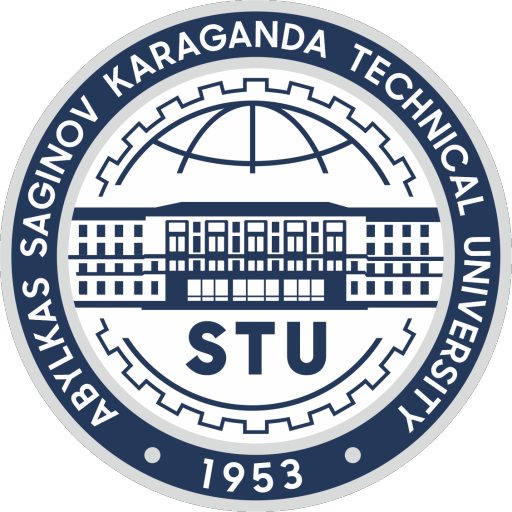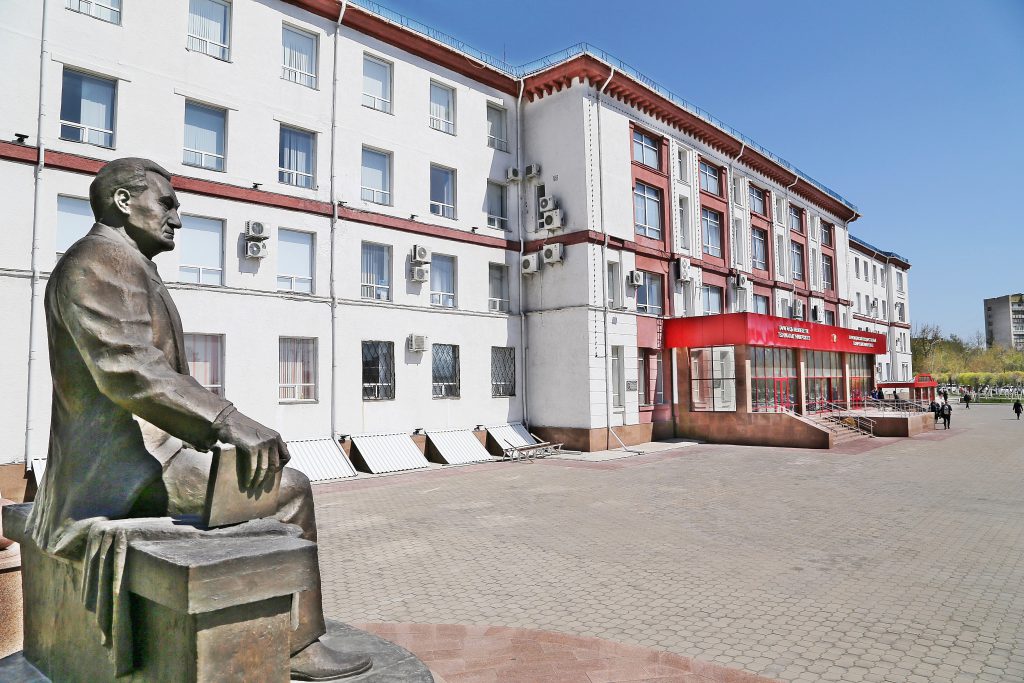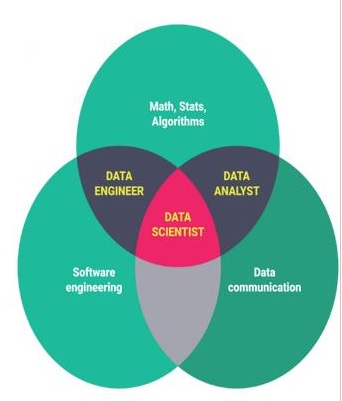Department of «Information computing systems»(IСS)
«KSTU named after Abylkas Saginov»
- 6В06102 «INFORMATIVE SYSTEMS»
- 6В06104 «COMPUTING ENGINEERING AND SOFTWARE»
- 6B06103 «IT-MEDICINE»
Бакалавриат
The department trains bachelors in the specialty 6B06102 “INFORMATIVE SYSTEMS”.
Description Educational Program 6B06102 «INFORMATIVE SYSTEMS»
Academic degree:
Bachelor in Information and Communication Technology
Sphere of professional activity:
– software engineers for the design, development, implementation and operation of information systems,
their software and maintenance at industrial enterprises,
in companies, banks, various financial and social structures;
– information systems specialists in areas, web applications, mobile applications,
collecting and processing information in organizations and enterprises of various fields of activity;
– software engineers, scientists in design, research and educational institutions.
Qualification characteristics bachelor degree 6B070300 – Information Systems State Standard.
Professional competencies of graduates of the group of the Educational program “Information Technologies” in the following areas:
- – Fundamentals of information systems;
- – Fundamentals of mathematical and computer modeling;
- – Fundamentals of computer technology and software;
- – Business analysis in project management of information and communication technologies (ICT);
- – System analysis and construction of ICT architecture;
- – Software development, web and multimedia applications, testing;
- – Database maintenance and administration;
- – System and network administration of computer networks;
- – Information security.
Requirements for applicants
The previous level of education of applicants is general secondary, primary vocational, secondary vocational.
The applicant must have a certificate or diploma of the established sample of the appropriate level of education. Admission is carried out in accordance with the Standard Rules of admission to universities of the Republic of Kazakhstan.
| Qualification | Educational direction | Form of educating | Tuition (2021-2022 year) |
| Bachelor | Bachelor in Information and Communication Technology
|
Full-time (full)
|
650 000 KZT |
|
Full-time (accelerated)
|
650 000 KZT | ||
|
part-time (accelerated)
|
650 000 KZT | ||
| Bachelor in Information and Communication Technology
|
Full-time (full)
|
650 000 KZT | |
|
Full-time (accelerated)
|
650 000 KZT | ||
|
part-time (accelerated)
|
650 000 KZT | ||
| Master | Scientifically-pedagogical | Full-time (full) | 465 000 KZT |
| Profile | 465 000 KZT |
6В06104 «COMPUTING ENGINEERING AND SOFTWARE»
The department trains bachelors in the specialty 6B06104 “COMPUTER ENGINEERING AND SOFTWARE”.
Description Educational Program 6В06104 «COMPUTING ENGINEERING AND SOFTWARE»
Academic degree:
Bachelor in Information and Communication Technology
Sphere of professional activity:
Sphere of professional activity:
– Design engineers in design bureaus, design organizations, departments of automation and informatization of enterprises for the development and
maintenance of information and computer systems;
– Software engineers at industrial enterprises, enterprises and organizations of all fields of activity,
in management bodies, departments of information technology, financial organizations, business structures;
– engineer-systems engineers at the enterprises introducing and using computer equipment and programming;- web-developers, research assistants in design and research organizations.
– web –developers, researchers in design and research organizations.
| Qualification | Educational direction | Form of educating | Tuition (2021-2022 year) |
| Bachelor | Bachelor in Information and Communication Technology |
Full-time (full)
|
650 000 KZT |
|
Full-time (accelerated)
|
650 000 KZT | ||
|
part-time (accelerated)
|
650 000 KZT | ||
| Master | Bachelor in Information and Communication Technology | Full-time (full) | 465 000 KZT |
| Profile | 465 000 KZT |
6B06103 «IT-MEDICINE»
The department trains bachelors in the specialty 6B06103 «IT-MEDICINE».
Description Educational Program 6B06103 «IT-MEDICINE»
Academic degree:
The purpose of the OP: Training of specialists for the implementation and maintenance of information technology in the health care system
University partner (PDD):(DDOP):Medical University of Karaganda
Distinctive features of the OP: Double Diploma OP (DDDP)
Sphere of professional activity:
– Republican e-health center, its branches located in cities of Kazakhstan;
– healthcare institutions (hospitals, clinics, health centers, specialized centers)
– Software engineers for the design, development, implementation and operation of information systems for healthcare institutions, their software and maintenance;
– Specialists in the development of web-applications, mobile applications, the collection and processing of information for healthcare institutions.
| Qualification | Educational direction | Группа ОП | Form of educating | Tuition (2020-2021 year) | |
| Bachelor | 6B061 Bachelor in Information and Communication Technology | B057 | Full-time (full) | 2021-2022 academic year | 650 000 KZT |
| 2022-2023 academic year | 650 000 KZT | ||||
| 2023-2024 academic year | 650 000 KZT | ||||
| 2024-2025 academic year | 650 000 KZT | ||||
- 7M06101 «INFORMATIVE SYSTEMS»
- 7M06102 «COMPUTING ENGINEERING AND SOFTWARE»
- 7М06103 «MACHINE LEARNING AND DATA ANALYSIS»
Магистратура
IV. 7M06101 «INFORMATION SYSTEMS»
Description Educational Program 7M06101 «INFORMATIVE SYSTEMS»
The objects of professional activity of graduates are enterprises and organizations of various forms of ownership, developing, implementing and operating information systems and technologies in various fields of human activity.
Subject of professional activity
The subjects of professional activity of graduates are mathematical, informational, software, linguistic, technical and organizational and legal support of information systems and technologies, including technologies of design, development, implementation, maintenance and their operation.
production and technological activities: – development of new information systems and technologies to improve the efficiency of business processes in a modern organization; – Creation of components of information systems, production of programs and software systems; – testing and debugging of software systems of information systems; – installation, configuration and administration of network services of computer networks; – certification of objects of professional activity;
organizational and managerial activities: – organization and management of the processes of creation, implementation and maintenance of information systems and technologies; – the choice of technology, tools for organizing the development and implementation of objects of professional activity; – organization of individual stages of the process of developing objects of professional activity with a given quality at a given time; – training of personnel within the framework of the adopted organization of the process of developing objects of professional activity;
design and engineering activities: – development of a design strategy, definition of design goals, performance criteria, limitations of the applicability of information systems and technologies; –Development of requirements and specifications of individual components of objects of professional activity based on the analysis of user requests, models of the subject area and the capabilities of technical means; – designing the architecture of information systems components; – design of the human-machine interface of hardware and software systems; – design of mathematical, linguistic, informational, software and technical support of information systems based on modern methods, means and design technologies, including using computer-aided design systems;
research activities: – improvement of scientific, methodological and technological approaches and processes for the development of information systems and technologies; formation of new competitive ideas in the field of theory and practice of information technologies and systems; – development of methods for solving non-standard problems and new methods for solving traditional problems; makes forecasts for the development of processes by areas of application, using modern technologies for the creation and maintenance of big data;
educational and pedagogical activities: the implementation of educational activities in higher and specialized professional educational institutions on the basis of psychological and pedagogical principles.
V.7M06102 «COMPUTER ENGINEERING AND SOFTWARE»
The Department trains masters in the specialty 7M06102 “Computer Engineering and Software”. A graduate of the master’s program is awarded the academic degree of master of Computer Engineering and Software.
Description Educational Program 7M06102 «COMPUTER ENGINEERING AND SOFTWARE»
Period of study:
The standard duration of mastering the master’s degree program, depending on the direction and previous training, is:
— on the profile master’s degree-1.5 years;
— on the scientific and pedagogical master’s degree – 2 years.
Graduates who have successfully mastered the educational master’s programs are prepared for doctoral studies.
Master’s degree in 7M06102 – Computer Engineering and Softwarecan work as:
for profile training:
— engineer;
— engineer-programmer;
—electronics engineer;
— engineer for automated control systems and other positions corresponding to his qualification;
in scientific and pedagogical training:
— engineer;
— engineer-programmer;
— electronics engineer;
— engineer for automated control systems and other positions corresponding to his qualification;
— teacher;
— research fellow;
— specialist of the highest qualification of the highest category, etc.
Types of professional activity
Graduates of the master’s degree program in the specialty 7M06102 -Computer engineering and software can perform the following types of professional activities:
for profile training:
— design;
— industrial-technological;
— organizational and management;
in scientific and pedagogical training:
— research;
— pedagogical;
— design;
— industrial-technological;
— organizational and managerial.
The department trains masters in the specialty 7M06103 “Machine learning and data analysis”. Awarded Degree – Master in Information and Communication Technology
Description Educational Program 7М06103 «MACHINE LEARNING AND DATA ANALYSIS»
- Data scientist (DS) и Machine learning (ML) – currently, one of the most popular and promising areas in the field of ICT is digitalization.
-
Data Science specialist structuring and analyzing large amounts of data using Machine learning, helps to make decisions, create and improve products in business, industry and science.
-
Specialists of this profile are in demand today in fundamental sciences, in production, research activities and in the field of IT itself.
- Every IT company has data analysts on its staff.
- The analysis of the need for specialists in this field through specialized recruitment sites showed, that since 2015, the demand for Data Scientist has grown 20(!) times.
-
The acute shortage of such specialists is openly stated by the largest domestic and Western corporations, among which Mail.ru Group, Home credit Bank, Nvidia, Beeline, etc
- Today on hh.kz (the Vacancy website of the Republic of Kazakhstan) about 40 vacancies have been opened in this field of training!
Learning outcomes: knowledge and skills
- in the field of modern methods of artificial intelligence,
- applied to a wide range of urgent tasks ,
-
analysis and mining of data representation and processing of knowledge.
Data mining is an automated data search based on the analysis of huge amounts of information.
The main areas of study
- Artificial intelligence (Artificial Intelligent) and development of intelligent systems (Intelligent Systems Development).
- Methods of analysis of “big data” (Big Data Analysis), Data Mining and Data Visualization.
- Machine learning (Machine Learning).
- Analysis of formal concepts (Formal Concept Analysis).
- Network analysis (Network Analysis)and applied graph theory (Applied Graph Theory).
- Ontological modeling (Ontology Engineering) and semantic technologies(Semantic Technologies).
- Multimodal clustering (Multi-Modal Clustering)and Recommender Systems.
- Automatic text processing (Natural Language Processing) и распознавание образов (Pattern Recognition).
Objects of professional activity
- Enterprises and organizations of various forms of ownership, using large amounts of data in digital form, requiring their structuring and analysis to solve production and management tasks;
- Scientific institutes and organizations developing, implementing and operating intelligent systems for predicting new results and making recommendations, allowing to optimize various processes and productions.
Subject of professional activity
Mathematical, informational, software, linguistic, technical, organizational and legal support
- software tools for processing big data,
- intelligent strategic assessment systems,
- data management in solving production and management tasks,
- including technologies of design, development, implementation, maintenance and their operation
“Program yourself for success!”


